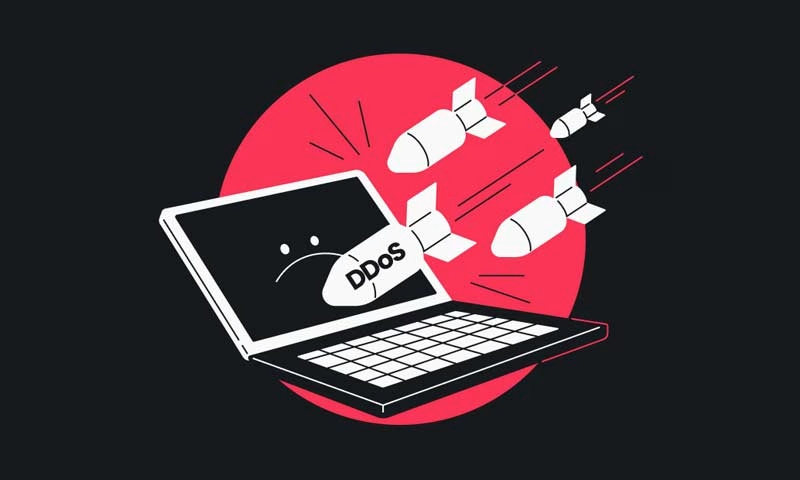A Distributed Denial of Service (DDoS) attack is a type of cyberattack where hackers attempt to put a website or online service on the ground by flooding it with huge amounts of traffic. This leads to a slowdown or in some cases crashing of websites. DDoS attacks can damage small businesses that depend on their online presence. In this blog, we will look at the effects of DDoS attack on small businesses and how such businesses can protect themselves from them.
What Is a DDoS Attack?
A distributed Denial of Service (DDoS) attack is where hackers bombard a site or online service with a wave of traffic. This wave makes the website slower or even crashes it altogether. In turn, this means that genuine customers will have a hard time accessing it. In a DDoS attack, traffic comes from several sources making the problem even harder to block. Such attacks can be serious for small businesses that operate through their websites.
How do DDoS Attacks Affect Small Businesses?
Small businesses are especially vulnerable to DDoS attacks. Large corporations, having large teams of cybersecurity professionals at their disposal, can defend against DDoS attacks. On the contrary, the impact of any DDoS attack on small companies is more devastating due to the absence of technological, financial, or human resource capacities to resist such attacks. Even a small DDoS attack will then cause greater distress for small businesses.
When a website runs down due to a DDoS attack, customers cannot access the services of the business or make purchases. This again poses the danger of lost sales, and the business stands the risk of losing its customer base to competitors.
Financial Impacts from DDoS Attacks
For small businesses, the financial impact of a DDoS attack can be enormous. Apart from losing sales, funds may also have to be paid for special services hired to mitigate or recover from the DDoS. These could include hiring IT experts or purchasing anti-DDoS software. The price for these types of services could be crippling for a small business with a limited budget.
Also, during the downtime of an attack, productivity is lost. Employees dependent on websites for their work are now not able to perform their duties, thereby delaying orders, customer support, and other very important tasks. Because of such interlinked losses, the price of the entire attack will add up, thereby interfering with the small business in its recovery efforts.
Damage to Reputation
The reputation of a small business can totally be tarnished by a DDoS attack. Customers expect uninterrupted online services in this digital era. If a business’s website is down for many days, it may begin to consider the company as unreliable, giving rise to mistrust that would take a long time to remedy.
Small businesses depend heavily upon word-of-mouth reputation and online reviews that can make or break them. Ill feelings may prompt customers to vent their anger on social media, and negative reviews may sprout if customers get blocked from accessing the website during an attack. This is detrimental to a business’s reputation, even long after the attack is over.
Protecting Against DDoS
Small-scale businesses, unlike their bigger counterparts, may not have a lot of resources to defend against a DDoS attack. First, they certainly could invest in a good hosting service with DDoS protection. Numerous hosting companies offer services to detect and block traffic from suspicious sources.
Second, the business should partner with cybersecurity experts to implement additional measures such as firewalls and monitoring systems. Such tools can better detect and neutralize attacks before greater damage can be done.
Lastly, small businesses should have a contingency plan for an attack, be it the availability of an alternate website or service, or customer support to help manage problems arising during an attack.
Conclusion
Small businesses suffer greatly from DDoS attacks. The effects of service downtime, financial losses, and damage to reputation can be severe and long-lasting, with difficulties associated with recovery. However, by taking steps to prevent attacks and prepare for their inevitability, small businesses can shield themselves and mitigate the more unpleasant consequences of cyberattacks of this nature.










